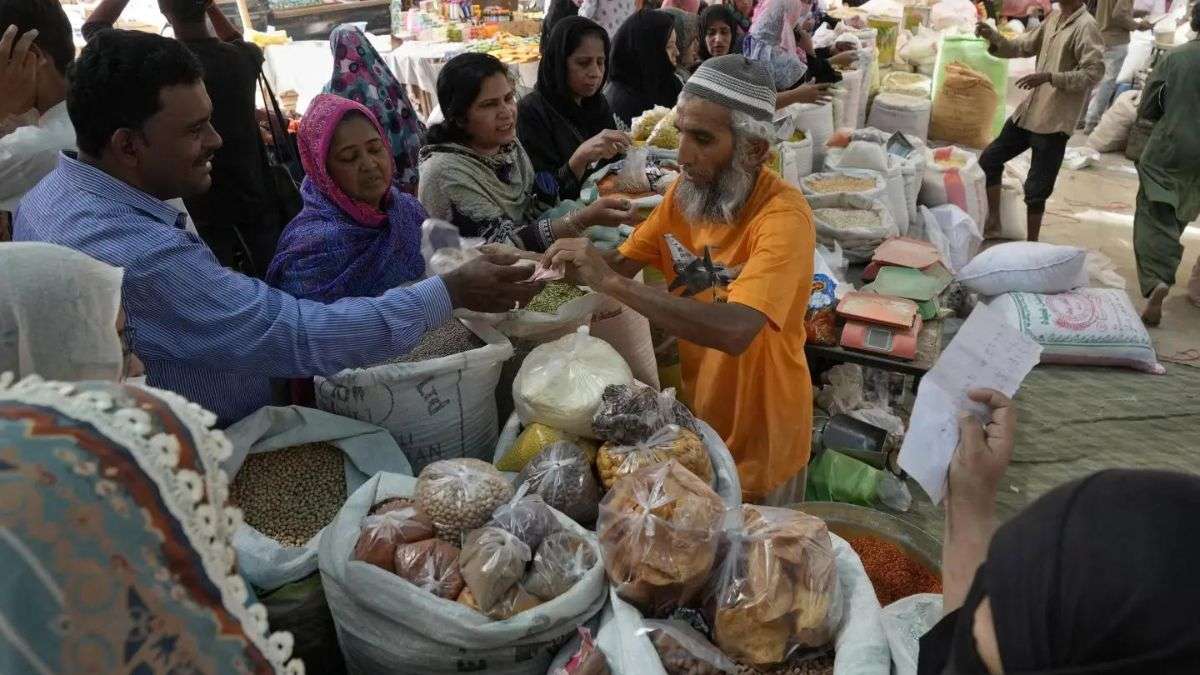
[ad_1]

Islamabad: Pakistan’s newly formed parliament elected Shehbaz Sharif on Sunday as prime minister for a second time, three weeks after uncertain national elections caused delays in the formation of a coalition government. He beat Omar Ayub, the candidate backed by jailed former Prime Minister Imran Khan, who secured 92 votes. Pakistanis on the streets of Karachi and Lahore expressed concerns over the cost of living and the deteriorating conditions, with many saying that the newly elected prime minister would not improve the situation.
“Shehbaz Sharif who has been elected (prime minister) today was also elected for a brief period earlier. The main function of a prime minister is to make its people prosperous. I will only request the prime minister to control the inflation which is rising day to day. Electricity prices are going up. He has been elected today but five days ahead of it we heard an increase in petrol prices. The prime minister should control these things,” said Mohd Imran, a local resident.
WATCH: What people think of Shehbaz’s victory
“He has become prime minister out of a fake vote (in the election) and I don’t think Pakistan’s condition will improve. The situation is further deteriorating and the people are nearly crushed by inflation. Electricity and gas prices have gone up, transport is costly. I don’t think this prime minister will be able to fix things,” said another local.
Shehbaz sworn in as next PM today
Notably, today as Shehbaz was sworn in as the Prime Minister, the declaration was also met with loud protests from the Sunni Ittehad Council (SIC) party backed by Khan. The lawmakers called for Khan’s release and shouted slogans alleging Sharif had come to power through electoral rigging.
The February 8 election was marred by a mobile internet shutdown, arrests and violence in its build-up and the unusually delayed results triggered accusations that the vote was rigged.
“This (election of prime minister) will not make a difference. The condition of the people is deteriorating day by day and their problems will not be solved by this (election of prime minister). This is the continuity of the same status quo which has prevailed in the country from the beginning and it seems that it will continue to prevail. People are worried about inflation and high prices,” said Umar, a resident.
The path will be not a ‘bed of roses’ for Sharif
Pakistan continues to be enmeshed in an economic crisis with inflation remaining high, hovering around 30%, and economic growth slowing to around 2%. Sharif will need to emulate his feat of securing a short-term IMF bailout with the current programme expiring next month and a new extended deal needed to keep Pakistan on a narrow path to recovery. But his main role will be to maintain ties with the military, which has directly or indirectly dominated Pakistan since independence. Unlike his elder brother, who has had a rocky relationship with the military in all his three terms, the younger Sharif is considered more acceptable and compliant by the generals, analysts say.
For several years, the military has denied it interferes in politics. But it has directly intervened to topple civilian governments three times, and no prime minister has finished a full five-year term since the country’s independence. Privatising some lumbering state giants, including the national airline, and securing foreign investment will also be key to ease the economic crisis. The Sharifs have close ties with rulers in Saudi Arabia and Qatar, which could help in securing investments in several projects Pakistan has lately showcased for sale.
Although defence and key foreign policy decisions are largely influenced by the military, Sharif will have to juggle relations with the U.S. and China, both major allies. He is also faced with dealing with fraying ties with three of Pakistan’s four neighbours, India, Iran and Afghanistan.
(With inputs from agency)
[ad_2]
Source link